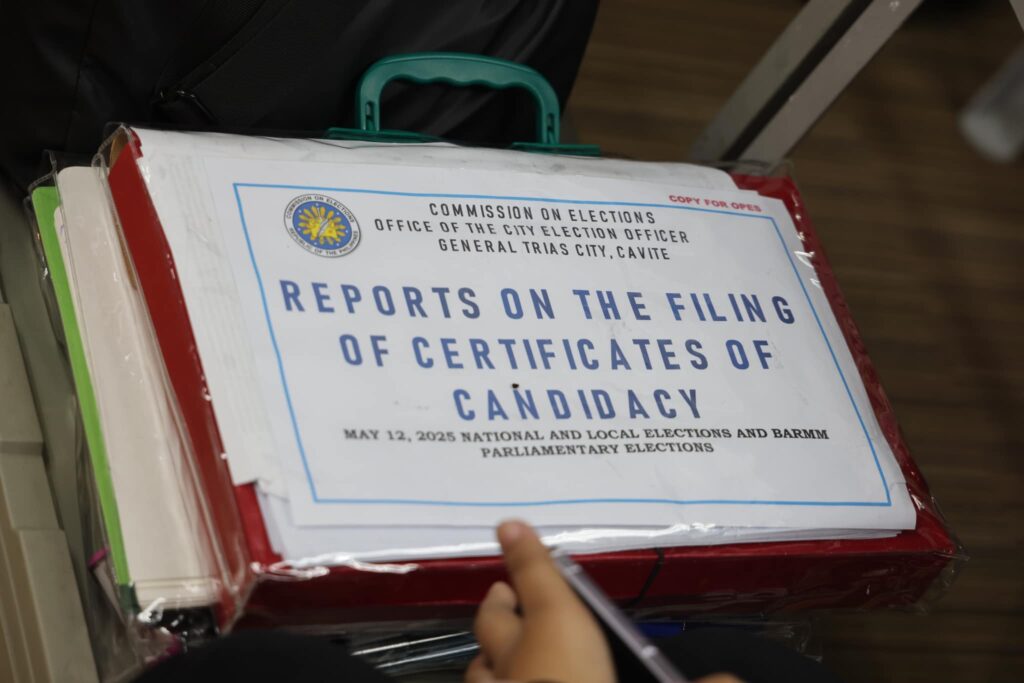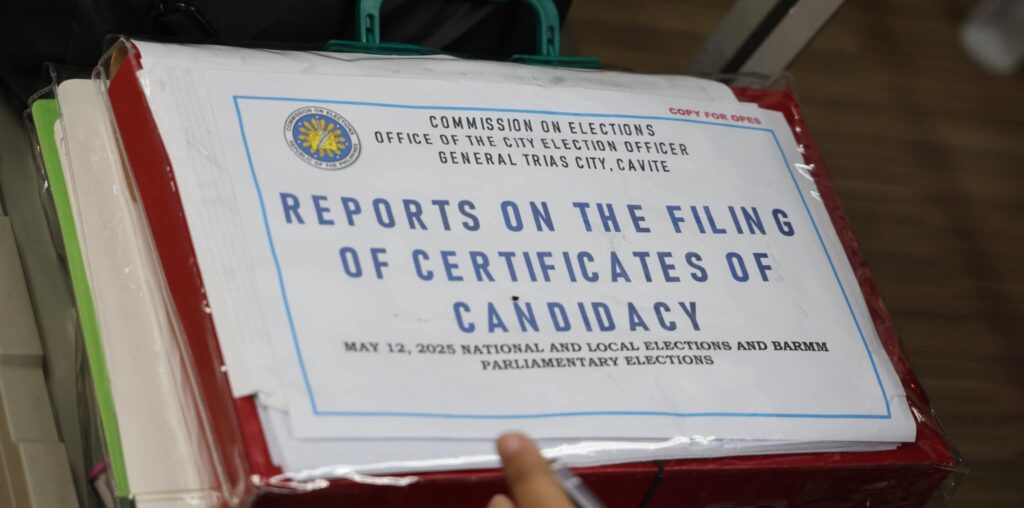
Submission and delivery of Certificates of Candidacy and other documents (File photo from Comelec Facebook page)
MANILA, Philippines — The Commission on Elections (Comelec) rejected the appeal to overturn its nuisance candidate declaration covering 18 senatorial aspirants, one of whom said he would elevate his case to the Supreme Court (SC).
Comelec chairman George Erwin Garcia said on Friday that 21 senatorial aspirants filed their motion of reconsideration (MR) before the poll body’s en banc.
So far, the Comelec only released the names of 18 aspirants whose MRs were rejected.
Garcia said the poll body will decide on their appeal before Nov. 30.
Comelec rejected the MRs of the following 18 aspirants:
Article continues after this advertisement
- Francis Leo Marcos
- Felipe Fernandez Montealto Jr.
- Orlando Caranto De Guzman
- Manuel Lim Andrada
- Sonny Miranda Pimentel
- Elpidio Rosero Rosales Jr.
- Jaime Gaspacho Balmas
- Pedro Gonzales Ordiales
- John Rafael Campang Escobar
- Roberto Sontosidad Sembrano
- Romulo Tindoc San Ramon
- Fernando Fabian Diaz
- Luther Gascon Meniano
- Romeo Castro Macaraeg
- Subair Guinthum Mustapha
- Berteni Cataluña Causing
- Alexander Cura Encarnacion
- Monique Solis Kokkinaras
The Comelec en banc’s rejection means the aspirants can only appeal their nuisance candidate declaration before the SC.
Article continues after this advertisement
Applicant Felipe Montealto Jr., who said he already “anticipated” the Comelec en banc’s rejection of his MR, said he will do just that.
“Based on my own observation, the en banc does not overturn the decision of their divisions, especially when it comes to such cases,” Montealto said in a phone interview with INQUIRER.net.
However, in 2022, SC reversed Comelec’s nuisance candidate declaration on a senatorial aspirant.
In 2021, Comelec had denied Norman Marquez’s senatorial bid for being “virtually unknown” and having no political party.
Still, SC, in a 20-page decision, said any Filipino who runs for public office cannot be deemed a “nuisance” and disqualified for lack of fame, money or party machinery.
Unfortunately, Marquez’s case was already moot back then.
Still, the high court stated that it found it necessary to resolve the case because “the same situation may recur in future elections.”

